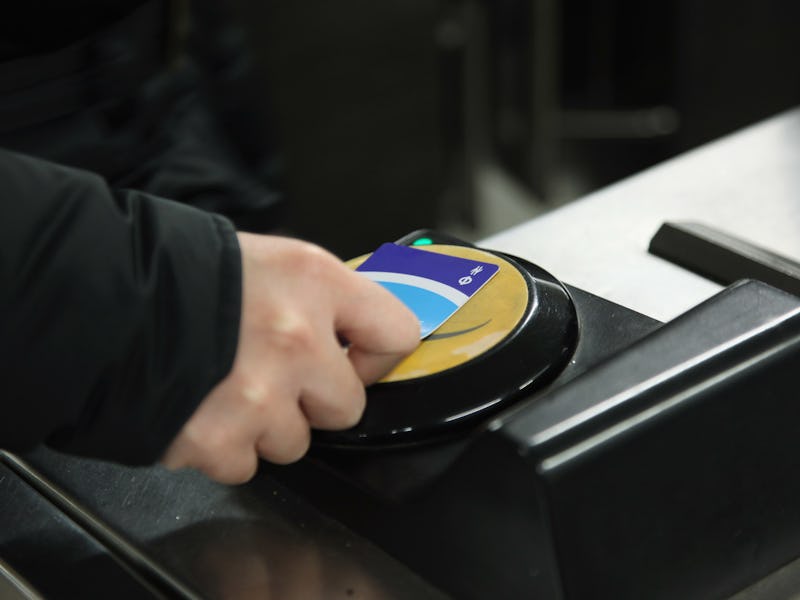London's Awesome Tube Payment System Is Going Global
As easy as waving your bank card at the ticket barrier.

London’s seamless tube payment system could soon debut in other major cities around the world. Transport for London (TfL) has reached a deal with Cubic Transportation Systems (CTS), a smartcard ticketing service provider, to take London’s technology and bring it to metro networks worldwide.
For those unfamiliar with London’s system, a quick primer. TfL originally launched the Oyster card at the turn of the century, a card that users could wave at the ticket barrier to enter a station. Customers can top up the card at payment points. The contactless system cuts out the middle man: passengers can now wave their bank card at the barrier, or even use their smartphone, and the funds are taken straight from their account.
As a big fan of TfL’s system, this will be awesome. Getting on a bus in a hurry is as easy as waving my Apple Watch at the driver’s machine. No need to put down my bags, fumble with my wallet, or worry about topping up. In fact, the idea is so good that New York’s MTA has publicly announced plans for a similar system.
The scope for the 15 million (nearly $20 million) deal is huge. At the moment, CTS provides tech for a number of cities, including Chicago, Vancouver, and Sydney. The company can now offer a contactless system designed for extreme workloads: the system has processed over 500 million transactions since launching in December 2012, and one in 10 British contactless transactions are with TfL.
“Contactless payments have completely transformed the way people pay for travel in London and this deal will allow other world cities to benefit from the hard work we put into making the system work for our customers,” said Shashi Verma, chief technology officer at TfL, in a statement.
The move will help London pay for its own tube system. Sadiq Khan, who was elected mayor of London in May, said that the income from the deal will be used to fund a freeze in the capital’s rail fares. Freezing fares for the next four years was one of Khan’s key campaign promises.